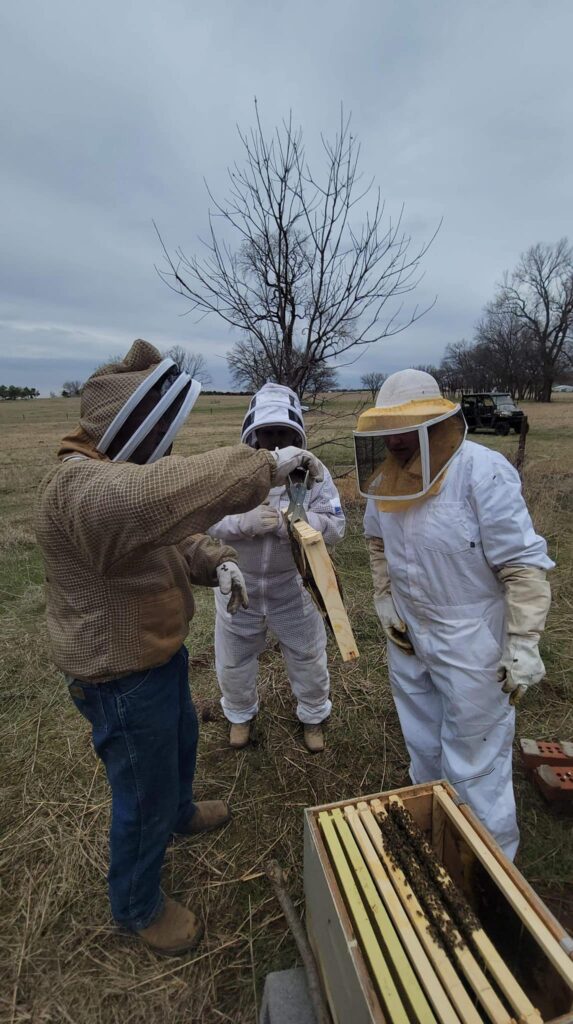European honey bees are the most commonly used species as a U.S. pollinator. In fact, bees are used to pollinate over 100 commercially grown crops in North America, making beekeeping one of Oklahoma’s activities with the most buzz – whether as a hobby or a business.
“The Oklahoma Apiary Act allows any Oklahoman to have bees,” says Steve Easom, owner of Easom Farms in Slaughterville. “As livestock, bees need to be managed properly, and if not, there’s an 85% national death rate of bees.”
Rules and regulations for keeping bees are straightforward.
“The Oklahoma Department of Agriculture administers a very friendly set of guidelines,” says Patrick Tickel, secretary of the Oklahoma State Beekeepers Association, president of the Texoma Beekeepers Association, and vice president of the Noble Beekeepers Association. “With the U.S. Department of Agriculture classifying bees as livestock, it can afford beekeepers the chance for federal assistance.”
But both Tickel and Easom encourage people to study before diving into the activity.
“To get started, have at least one year without bees,” says Easom. “Take one year of knowledge and mentorship, and then get with a bee club to find out what type of equipment you’ll need.”
Tickel, who owns his own beekeeping business, advises novices to “find a support group, like a local or regional club. Monetary commitment can be a consideration. Weekly time commitment may range from one hour to three or four, depending on the number of colonies you manage.”
As for the care and keeping of the bees themselves, “honey bees need to be inspected once every 14 to 18 days,” Easom says. “Inspections take somewhere between five to ten minutes for the owner. With a mentorship, you’re going to see the different approaches to be able to achieve the inspection effectively.”
Tickel says risks include stings, but also not having time to manage hives on a schedule, and losing bees to pests and diseases.
Both experts advise to wear appropriate protective gear including a beekeeper suit, a veil and gloves every time one interacts with bees.
“Have an idea of whether or not you’re allergic to bees, and if allergic, take appropriate measures,” says Easom. “And don’t overfeed your bees. When there’s nothing to forage on, many people feed them too much, and they feed them sugar, which has zero nutrition.”
Oklahoma State University Extension has a plethora of beekeeping resources, plus white papers on the website.

Making a Difference
In 2022, Easom’s family began their free program designed to cater to veterans and first responders with life challenges. Using their farm’s facility to train new beekeepers, the program has positively impacted a variety of Oklahomans, helping them to refocus and gain new life purposes. The next classes, which include a virtual component, begin March 31 and meet once monthly until November. Classes run from
10 a.m. to 5 p.m. Team Easom funds the equipment, and people don’t even have to be exposed to bees if they don’t want to.
“Our program is a pathway for them to finish the course, and come back into the program as mentors if they desire,” says Easom, who is also a veteran. “It’s the opportunity to give back, which makes a difference for the challenges they face. The public is also welcome, but we don’t provide equipment for them like we do for veterans and first responders.”
Easom’s Tru Bee Removal is the only state certified company that extracts and relocates problematic bees.
Find Easom at 405-830-0151, and sign up for classes at trubeeremoval.com.






















